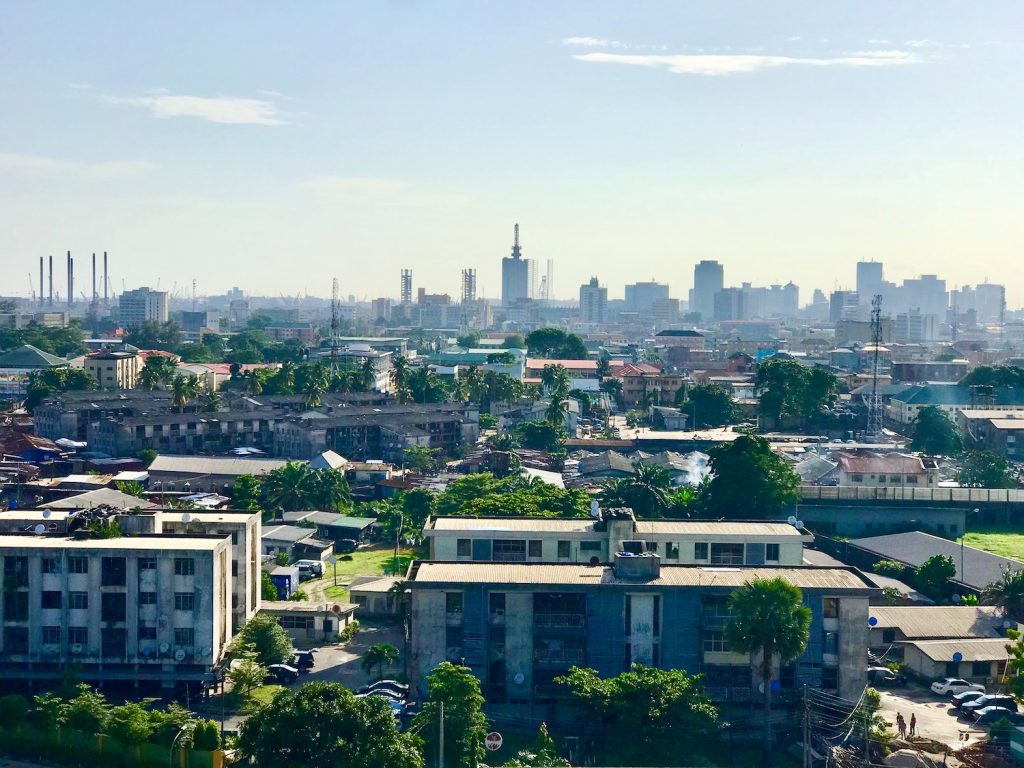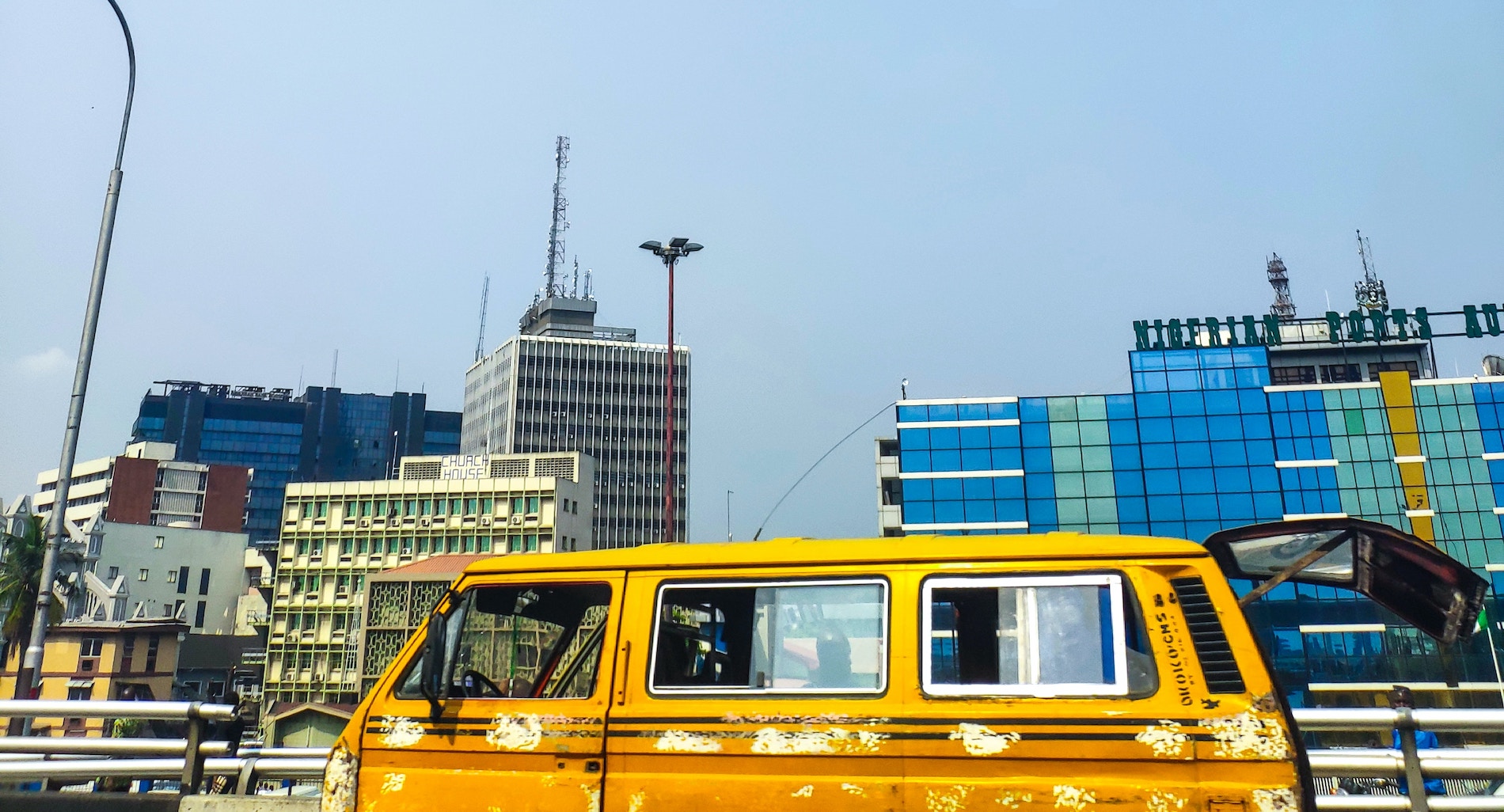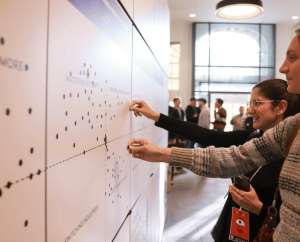The product design community in Lagos
Lagos has emerged as a dynamic center for product design and innovation, fueled by a vibrant community of creatives. What sets Lagos apart from other cities is the diverse range of design expertise available within its community. From UI/UX designers who specialize in web and mobile app design to industrial designers who create cutting-edge physical products, Lagos has a wealth of talented professionals pushing the boundaries of their respective fields. But it’s challenging to provide an accurate figure as it’s continuously evolving.
Lagos’ product design scene extends back to the early 2000s, when Nigeria’s digital industry began. Previously, it was dominated by software development and web design firms and only a few organizations concentrated on product design.
Genii Games Limited, formed in 2012, was one of the first design companies in Lagos. The firm hoped to promote Nigerian culture and history through games and applications. This was a crucial step forward in developing Lagos’ product design community. As a result, it emphasized the need to represent local culture and identity.
In 2013, the Co-Creation Hub (CcHub), a Lagos-based digital cluster, opened its Design Lab. This was Nigeria’s first dedicated design facility to cultivate and support design talent. Designers who joined CcHub had access to tools, resources, and mentors through the lab. This assisted them in honing their abilities and creating great products.

As the Lagos tech industry expanded, more firms focused on product design. Andela, formed in 2014, was one of the startups that launched during this period. Andela’s goal was to train and recruit outstanding African developers and designers.
Likewise, Paystack was founded in 2015 and its focus has been on making online payments simpler and more accessible for businesses in Nigeria. It introduced a range of features that made it easier for businesses to accept payments online, such as a user-friendly interface for setting up payment processing, integration with local and international payment providers, and fraud prevention and detection tools. Another innovative aspect of Paystack was its focus on providing support for businesses of all sizes, from small startups to large corporations. Paystack’s platform is scalable, flexible, and customizable, allowing businesses to choose the features and services that best fit their needs and budget.
Flutterwave was also launched a year later. It is a platform that allows businesses to accept and manage online payments across multiple channels, including mobile money, cards, and bank transfers. The company also offers a range of other financial services, such as bill payments, bank transfers, and foreign currency exchanges. Flutterwave’s relevance stems from its role in transforming the African payment sector by offering a revolutionary payment infrastructure that allows businesses and consumers to conduct smooth, safe, and economical transactions. Also, the company has played an important role in increasing financial inclusion in Africa by enabling small companies and entrepreneurs to engage in the digital economy.
The success of these firms demonstrated the possibilities for Nigerian digital entrepreneurs. The emphasis they put on user experience design helped develop the product design scene in Lagos. Today, Lagos has a booming product design environment, with multiple design businesses tackling some of Nigeria’s and Africa’s challenges.
Today, Lagos has a booming product design environment, with multiple design businesses tackling some of Nigeria’s and Africa’s challenges.
A journey of innovation and growth
Over the last decade, Lagos’ product design community has grown dramatically. This transition was driven by technological availability, consumer behavior, and entrepreneurial culture.
Previously, the emphasis was mostly on software development and web design. This was due to an increased demand for web-based apps and software across various industries. However, companies gradually understood the need for useful and beautiful products. As a result, the design community expanded into other fields, such as user experience, product design, and interface design. This shift in emphasis spawned a new generation of zealous designers.

In addition, there was an increasing sense of collaboration among designers and businesses. Numerous design-oriented businesses sprung up throughout the city. Examples are Parallax Digital Studios, CCX, and Kudi.ai. These companies created cutting-edge IT products and solutions across Nigeria.
Now, Lagos is a mecca for design schools and boot camps in Africa. Lagos is home to several design-oriented businesses, and the demand for design services is increasing across various industries. Lagos is undoubtedly one of the leading design hubs in Africa, alongside other cities such as Nairobi, Cape Town, and Johannesburg. These cities have also experienced similar growth in their design communities.
Lagos’ product design community is influencing the rest of the region, as designers from other African countries are looking to Lagos for inspiration and learning opportunities. This is evident from the growth of design schools and boot camps in Lagos, which are attracting students from across Africa. Additionally, Lagos-based design companies are working with clients from other African countries, helping to spread design knowledge and best practices throughout the continent.
In comparison to other regions of the world, Lagos’ product design community is still relatively small. But it has the potential to become a significant player in the global design industry. The increasing demand for design services across Africa presents an excellent opportunity for Lagos-based designers and businesses to expand their reach and influence.
The evolving product design community in Ghana, Accra
Ghana’s product design community began in the early 2000s with firms focused on software, the web, and mobile app development.
SoftTribe, founded by Herman Chinery-Hesse, is indeed one of the leading software firms in West Africa. The company has made several significant contributions to the tech industry in the region. One of its most notable achievements is the development of the “Anansi” keyboard, which enables people to type in African languages such as Akan, Yoruba, and Twi. This keyboard has helped to preserve and promote African languages in the digital age, and has made it easier for people to communicate in their native tongues.
SoftTribe has been involved in several initiatives aimed at promoting social and environmental responsibility. For instance, the company has launched a program to promote the use of solar energy in rural communities in Ghana, which has helped to reduce carbon emissions and improve access to electricity. Additionally, SoftTribe promotes gender equality and empowers women in the tech industry in Africa.
In the mid-2000s, many product design firms emerged in Ghana, including BusyInternet. Fast forward to today, and Ghana’s product design ecosystem has flourished with an increase in startups and digital enterprises. There is a notable shift towards design thinking and user-centered design, with more businesses following suit. To support this growth, several organizations and projects provide training and coaching to tech entrepreneurs and product designers. Among these organizations is Ghana Tech Lab, known for its support of local startups through mentorship and access to funding. We also find MEST Africa, focused on providing comprehensive training and resources to entrepreneurs. Ghana Innovation Hub, is a hub for innovation and entrepreneurship that offers co-working spaces and access to experts in various fields.

A fast-growing IT ecosystem
The Rise of Ghana’s product design community stands out. Ghanaian designers create products recognized across the world, ranging from mobile applications to hardware gadgets. The availability of talent and resources is one driver of this trend.
Ghana is home to many world-class universities. The Kwame Nkrumah University of Science and Technology (KNUST) and the University of Ghana have design, engineering, and computer science programs that keep feeding the market with top-trained graduates.
The rise of Ghana’s product design community is indeed impressive. A notable example of Ghanaian designers creating internationally recognized products is the Sika Card. It is a prepaid card designed by Kweku Fleming, which won the prestigious Core77 Design Award in 2015. Additionally, the growing freelancing community in Ghana is around 20,000 designers and developers, who work remotely for clients across the world. This community is facilitated by the country’s high-quality internet infrastructure and the availability of affordable co-working spaces. Another factor driving the growth of Ghana’s product design ecosystem is the country’s rapid adoption of digital solutions. Asides that, the Ghanaian government has been supportive of the IT industry. It created projects such as the Ghana Tech Summit and the Ghana Innovation Hub to stimulate innovation and entrepreneurship.

Development also means challenges
The product design communities in Ghana and Nigeria face similar obstacles, including
Limited Funding
Both countries have a limited number of venture capital firms and angel investors, making it difficult for startups to secure the funding they need to scale their products for several reasons. In 2020, According to Techpoint, Africa’s leading organization for innovation through media, here are the statistics for African tech funding. Though this is a significant increase from previous years, it is still low compared to other regions.
Not only that, but the regulatory environment in these regions is challenging for startups. For example, in Nigeria, high tax rates and complex regulations make it difficult for startups to get off the ground. Also, access to credit is difficult for startups in these regions, as banks and other financial institutions may not have the necessary infrastructure to support them.
There is a lack of awareness among potential investors about the potential of the tech product design community in Lagos and Ghana. Many investors may not understand the value proposition of these startups, leading to a lack of interest and investment. Finally, the COVID-19 pandemic has also had a significant impact on the funding of startups in these regions. According to Disrupt Africa, the total funding in Africa decreased by 29.3% in 2020, compared to the previous year, as investors became more cautious.
To address this challenge, more investors need to invest in the product design industry in these regions. Furthermore, the government can create incentives for private investors to fund tech startups, while financial institutions can provide loans or grants to help them grow.
Limited Access to Skilled Talent
While Lagos and Ghana have many graduates in the fields of technology, there is still a challenge of limited access to skilled talent. This is because not all graduates possess the specific skill sets required for product design. And those who do may not be readily available to work in the industry.
One reason for limited access to skilled talent is the competition for talent across different industries, including both the public and private sectors. For example, government agencies and large multinational corporations may offer more attractive compensation packages and benefits, making it difficult for startups in the product design community to compete for talent. Another reason is the lack of specialized training and education for product design. While universities in Lagos and Ghana may offer courses in technology and design, these may not be tailored specifically to the needs of the product design industry. This results in a gap between the skills graduates possess and the skills the industry requires. To tackle the challenge, schools and other industries may offer specialized training in product design. Likewise, the government could incentivize companies that provide training to employees. One organization that recommends addressing the limited access to skilled talent in the tech product design industry through specialized training is the African Development Bank (AfDB). According to a report published by the AfDB, “There is a need for training and re-training of workers in technical and managerial skills that are specific to the technology sector.” The report encourages companies to invest in human capital development, and governments should incentivize companies that provide training to their employees.”
Lack of Infrastructure
Infrastructure such as electricity, internet connectivity, transportation, and adequate workspace can hinder the development of technology products and the growth of the tech industry in general.
In Nigeria, for example, the power supply is unreliable, with many areas experiencing frequent blackouts. According to the World Bank, only 57.5% of the Nigerian population has access to electricity, and even those often face power outages that can last for several hours.
Similarly, internet connectivity is slow and unreliable in many parts of Lagos and Ghana, making it daunting for tech companies to develop and deploy their products. According to the 2021 Global Connectivity Index, Nigeria ranks 76th out of 79 countries in terms of connectivity, while Ghana ranks 72nd.
Transportation can also be a challenge, particularly in Lagos, which has a notoriously congested road network. This makes it difficult for employees to get to and from work, as well as for companies to deliver their products to customers. Similarly, adequate workspace is hard to come by in Lagos and Ghana, particularly for startups that are just getting off the ground. Rent is expensive, and many firms may not have the resources to invest in a dedicated office space.
Join the beat!
With numerous design firms solving some of the most pressing problems in Nigeria and Africa, there is enough space and opportunity for design to grow in both regions.
Moreover, the emergence of new-generation designers, design schools, and boot camps supports the industry’s growth in West Africa. As such, the future looks promising for the Lagos and Ghana design fields as more young talents, design-focused companies, and organizations emerge continually.
* * *
Curious about the digital design scene in Africa? Join Design Matters for a free online session of lighting talks and hardcore networking with great West African and international designers. Connect with fellow designers, make new friends, pump your design skills, and lay down the seeds of future career moves or exploration. We’re building an international design community that is inclusive, responsible and diverse. Bring your preferred beverage, it will be casual!
Cover photo courtesy of Babatunde Olajide.




